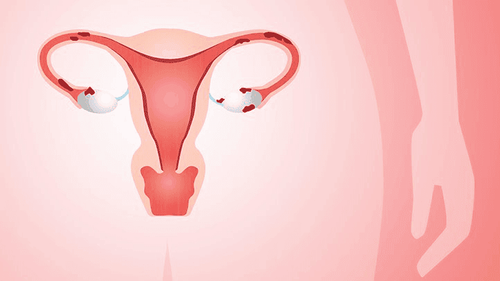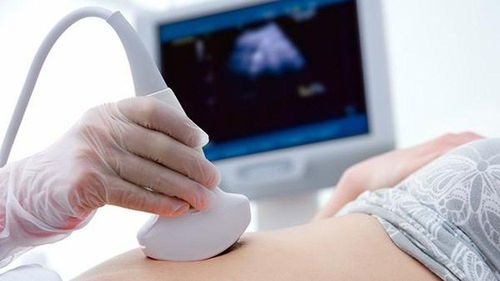This is an automatically translated article.
Pregnancy brings a lot of happiness to the mother, but also a lot of fatigue and anxiety. In addition to paying attention to proper nutrition and rest, pregnant women also need to know the signs of fetal growth retardation in the uterus for timely treatment.
1. What is fetal growth retardation?
Fetal growth retardation is defined as a fetus that:
Has a weight less than 3 percentile Has a weight less than 10 percentile with doppler abnormalities Normal weight but does not develop Growth retardation is a complex obstetric problem complicated, affecting 5-7% of pregnancies, causing many serious consequences such as: stillbirth or long-term consequences such as: brain damage, mental retardation, diabetes, obesity, high blood pressure in adulthood, metabolic disorders.

2. Causes of fetal growth retardation
Maternal causes: High blood pressure, heart disease, kidney disease, antiphospholipid HC, smoking, alcohol abuse, nutritional deficiencies... Causes of pregnancy: Multiple pregnancy, infection, chromosomal abnormalities Cause due to placenta : Placental failure, umbilical cord adhesions In fact, fetal growth retardation often has no clinical signs, and sometimes occurs in obese patients, making it more difficult to diagnose. Therefore, pregnant women cannot recognize when their fetus is slow to develop, but they need to examine and manage their pregnancy in specialized obstetric institutions. The best way to find out is that the doctor uses an ultrasound machine to specifically check the baby's growth and weight and compares it with the fetal growth chart to know how the baby is developing.
In addition, doctors also rely on many risk factors of the mother to screen for fetal growth retardation such as: Mother has chronic diseases (diabetes, high blood pressure, antiphospholipid HC...)

3. Measures to limit intrauterine growth retardation
Measures to limit intrauterine growth retardation include:
Couples planning a pregnancy need to see a doctor for obstetric and genetic counseling and examination. During pregnancy, pregnancy must be examined and managed in a specialized facility. Do not drink alcohol, beer, avoid exposure to tobacco smoke during pregnancy Have a reasonable diet, supplement with essential vitamins and minerals. Have an active mode of exercise, it is best to reach 150 minutes/week. In short, fetal growth retardation is a common problem during pregnancy, leaving many negative consequences for both the baby and the mother. Fetal growth retardation can only be detected through the examination of a specialist. During pregnancy, mothers need to have regular prenatal checkups and ultrasounds to monitor the development of the fetus.

For mothers who unfortunately have a baby with growth retardation, please calmly follow the doctor's instructions, the fetus with growth retardation can still have a good ending, but it needs to be managed by a doctor and properly terminated. time.
At Vinmec International General Hospital, there is a package maternity service as a solution to help pregnant women feel secure because of the companionship of the medical team throughout the pregnancy. When choosing Maternity Package, pregnant women can:
The pregnancy process is monitored by a team of qualified doctors Regular check-up, early detection of abnormalities Maternity package helps to facilitate the process. delivery process Newborns receive comprehensive care Recommended video:
How to calculate gestational age?
Please dial HOTLINE for more information or register for an appointment HERE. Download MyVinmec app to make appointments faster and to manage your bookings easily.














